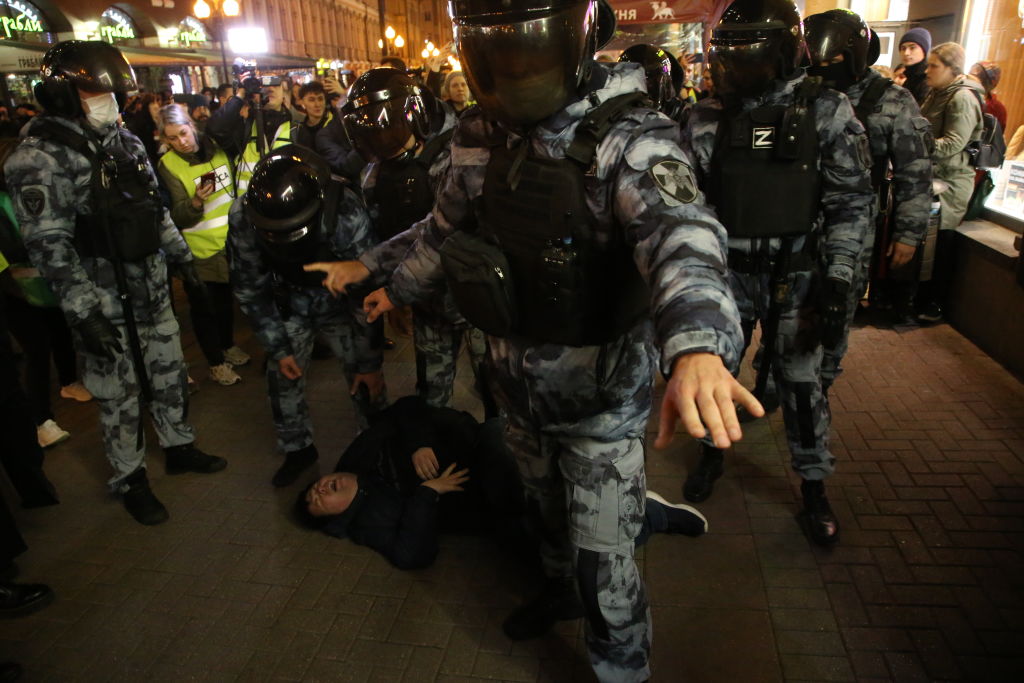Russian opposition calls for nomination of anti-war politician Boris Nadezhdin in presidential race

The Russian opposition has called for the nomination of Boris Nadezhdin, who is publicly opposed to the full-scale war and President Vladimir Putin's policies, RFE/RL and other outlets reported on Jan. 22.
Nadezhdin, who previously served in Russia's parliament, has attracted attention for repeatedly voicing his opposition to the war on television. He called the full-scale war a mistake and said that Russia could not defeat Ukraine using its current methods.
He is a member of the center-right Civil Initiative party.
His campaign website explicitly lists his positions as "peace" instead of "militarism," "civil society" instead of "Putin's (power) vertical," and "cooperation with European countries" rather than "Russia's isolation," among other views that contradict Putin's policies.
At the same time, Nadezhdin said in an interview with RFE/RL's Current Time project published on Jan. 12 that he supports the Russian constitution and considers himself a "Russian patriot." He also said that the citizens of Crimea wanted to join Russia. When asked if he would return the Ukrainian territories illegally occupied by Russia, he declined to answer directly.
According to Nadezhdin's website, he has collected more than 80,000 signatures supporting his candidacy. He needs 100,000 signatures, collected in at least 40 different Russian oblasts, to be added to the ballot in the upcoming presidential election scheduled for March.
Nadezhdin has also gained the support of former TV journalist Yekaterina Duntsova, who declared her candidacy for president in December on a similar peace platform. Russia's election commission denied her ability to participate in the election.
Local media reported that the Russian diaspora had turned out in significant numbers to register their signatures in support of Nadezhdin's presidential bid.
Nadezhdin has also met with representatives of an emerging anti-mobilization movement growing within Russia. An analyst told The Times that the meeting "irritated" the Kremlin because it could potentially further elevate the anti-mobilization position.
Maria Andreeva, who has increasingly become the symbol of the movement, has emphasized that she supports the guiding logic of the full-scale invasion. She also has repeated Russian propaganda about the Bucha massacre, in which hundreds of Ukrainian civilians were killed by Russian soldiers, saying that it had been "staged" by the West.
Andreeva's strongest grievances relate to the Russian government's treatment of its soldiers and the inability of mobilized men to be rotated out of the front line.
Putin is seeking a fifth term as president in an election he is widely expected to win handily.
Russia held a rigged vote in 2020 to approve constitutional amendments allowing Putin to run for two more presidential terms after his current one expires in 2024. The vote effectively made Putin, who has been in power since 1999, a dictator for life.
Freedom House, a nonprofit advocating international democracy, gave Russia a 0/4 score in its 2023 report card on political freedoms in the country.
"Russia has never experienced a democratic transfer of power between rival groups," described Freedom House.
Any meaningful opposition is prevented from having a fair chance at winning elections, creating "an authoritarian political system (that) is concentrated in the hands of President Vladimir Putin," the human rights group said.














